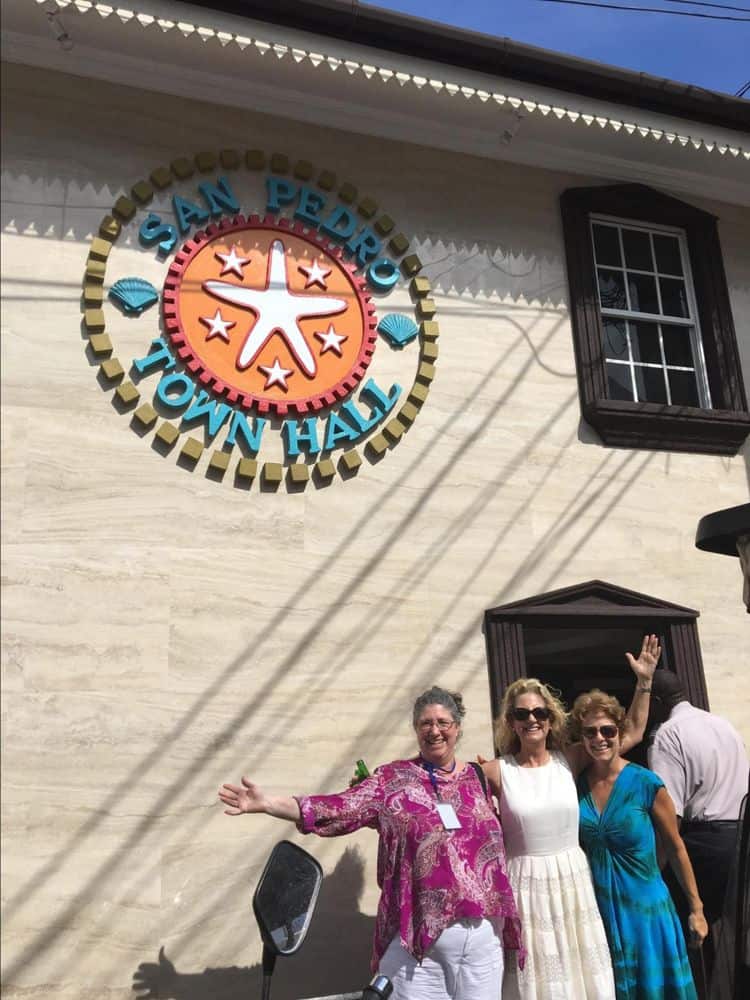This article was published in the Escape Artist Weekly Newsletter on February 07, 2018. If you would like to subscribe to the newsletter, please click here.
What is real estate syndication? Simply put, it’s a way to break up an expensive piece of property into smaller bites. The main benefits are twofold:
- Freedom of access to real estate opportunities for a wider investor audience.
- Diversification into multiple projects with smaller investment amounts in each.
These benefits make sense because they both champion the freedom of individuals to make investments, and they also spread risk across a wider number of properties. Let’s look at the freedom issue, since you probably know that I am a huge fan of freedom.
One of the biggest challenges I hear when I talk with folks about investing offshore is the issue of being, or not being, an accredited investor. It saddens me when folks who want to make an investment offshore are told no because they don’t meet qualifications established by the SEC, regarding who can invest in private placement opportunities and who may not.
Some argue that the basis of the laws are, on the surface, good. They are sometimes referred to as “widow and orphan” protections to keep the snake oil salesmen from swindling money from the poor. But does this story hold water?
Being poor doesn’t mean you are stupid. The accredited investor rules stipulate that unless you have income above $200k ($300k for a couple) or a net worth of $1,000,000 or more, you cannot participate in private placement investments onshore or offshore.
$1,000,000 net worth? That’s upper middle class or higher. I guess most of us are considered stupid by the folks in Washington. The wise on high believe that you simply cannot be trusted to make good judgments and decisions. Surprised?
I don’t know about you, but this is hogwash. Smarts and wealth have little to do with each other. And they are protecting us? From what? Decisions we as free individuals choose to make?
It was certainly OK for the big shots on Wall Street to profit with huge bonuses from government oversight failures like Enron, Madoff, and the housing market meltdown. Did they give the money back? LOL. All this while the “little guys” who need Big Brother’s protection lost their shirts. But remember, this was all legal and fine, because these investments had been certified as “safe” for the widows and orphans in which to lose their money.
Times do change, however, and there is a bright light of freedom. Enter the new law passed by Obama, the JOBS ACT. It made provisions for crowdfunding and allowed small investors to invest legally in new business ventures for the first time in many ways. This law gives new methodologies for small investors to participate in offshore investments. Pay attention. If you always thought only the big boys and girls get to play offshore, the times have changed….. somewhat. But we’ll take the inch they gave.
Rarely do I copy and paste another column into mine, but this week I did with Rachel Jensen’s piece about Real Estate Syndication. I could not have done a better job of explaining what it is and how it works. It is a measure of investment freedom for a change, and one you should know about.
If you like the general concepts, be sure to register for the Webinar she is hosting Tuesday, February 13th. Her guest will be a heavyweight in the syndication world who has helped dozens of folks get involved in real estate opportunities who before were just simply locked out.
Experience the Insider community that takes your international lifestyle to the next level. Download your FREE guide
"18 Steps to Implementing Your Plan B" instantly!
If you’ve always wanted to invest offshore but have been limited because you don’t meet the government’s restrictions on you, or the bite was too big, then this could be very enlightening and interesting indeed.
Crowdfunding for Real Estate Through Syndications
By Rachel Jensen
If you have ever identified the right investment property only to realize your bank account is missing a few zeros to make it happen, you’re in luck. With the recent 2015 revision of the JOBS Act, it has become easier for American investors, both accredited and non-accredited, to participate in pooled-resource real estate deals.
So, what exactly is the JOBS Act? The JOBS Act (Jumpstart Our Business Startups), was originally signed into law by President Obama in 2012 with the intent of easing the securities restrictions for small businesses. In 2015, this Act was revised to include non-accredited investors, opening the doors for many people.
By the way, according to the U.S. Securities and Exchange Commission (SEC), an “accredited investor” is defined as a single who has an income of $200,000+ over the past two calendar years, a couple with an income of $300,000+, and/or someone who has a net worth of at least $1 million excluding his/her primary residence. You may also start to hear the term “sophisticated investor,” meaning the investor has sufficient knowledge and understanding of financial matters to make an educated decision pertaining to an investment.

Crowdfunding started to become more mainstream because both accredited and non-accredited investors were able to invest in average startups and early stage companies, whereas in the past, investing was restricted to only accredited investors. Clarification as to what was a security and what wasn’t quickly became defined.
Websites such as GoFundMe (no return is promised to investor) and Indiegogo (rewards investors based on pledge amounts) became popular methods for investors to fund projects they believed in. Typically, these sorts of crowdfunding (donation and rewards-based) are not securities, but are rather regulated by the Federal Trade Commission. Where the SEC gets involved is when equity is exchanged for shares in a private company and capital is raised in the form of a loan.

The SEC continues to limit the total amount that someone can invest in securities-based crowdfunding projects based on their annual income, and for many investors, that threshold is never met. To see the specific limitations, please refer to this chart distributed by the SEC: https://www.sec.gov/oiea/investor-alerts-bulletins/ib_crowdfunding-.html
Coming back to the real estate example, this 2015 revision to the JOBS Act meant improved methods for structuring pooled real estate investments for both accredited and non-accredited investors. A real estate syndication is a fancy way of saying pooled money from investors to invest in a single fund for the purpose of purchasing investment real estate with the expectation of a return. There can be multiple properties in a single syndication or a single property, all dependent on what the sponsor assembles.

The “sponsor” is the individual who identifies the opportunities, identifies the investors, assembles the deal, and then manages the fund. The sponsor is typically compensated in one mode or another, including options such as profit sharing, acquisition/due diligence fee, asset management fee, property management fee, etc.
There is a magnitude of ways to raise capital, and it truly depends on how the sponsor wants to market the opportunity and whether they want to accept accredited vs. non-accredited investors. Because each syndication is structured differently, it is highly advisable that you take the time to review the syndication’s business plan to see if the partnership is right for you.
Below, we have identified a few of the most popular syndication models:
1. Rule 506(b) of Regulation D allows for up to 35 non-accredited investors, but they must be “sophisticated investors.” There is an unlimited number of accredited investors that can be taken. General solicitation cannot be done.
2. Rule 506(c) of Regulation D allows only accredited investors to invest in the opportunity. Reasonable measures must be taken to prove the investor is accredited. Advertising can be done freely.
3. Rule 504 of Regulation D states that up to $5 million can be raised within a 12-month period, however, general solicitation cannot be done. The entity has to file Form D.
4. Regulation A+ (Reg A+) is one of the most popular because there are no restrictions on the number of non-accredited investors, but it is also one of the more expensive to maintain. It is often referred to as a “mini-IPO (Initial Public Offering)” because of the ongoing compliance and disclosure documents needed to register with the SEC. It has two different tiers of offerings:
a. Tier 1:
i. Can feely advertise
ii. No investor restrictions
iii. Can raise up to $20 million in a 12-month period
b. Tier 2:
i. Can raise up to $50 million in a 12-month period, and investors can only invest up to 10% of their net income.
ii. Can freely advertise
5. Regulation Crowdfunding (CF)
a. Primalgeared towards newer companies doing smaller investments, since the maximum amount to raise is $1 million, open to both accredited and non-accredited investors. The investment must be offered through a registered broker.

The syndications are typically assembled via a Limited Partnership (LP) or Limited Liability Company (LLC) under one of the laws above.
Identifying a noteworthy syndication can be tricky if you’re not actively involved in the real estate investment world. Good news is that we’ll be hosting a live webinar with the notable syndication attorney, Mauricio Rauld, on Tuesday, February 13, at 7pm EST/4pm PST. Please join us if you’d like to learn how to become a syndicator or to hear about opportunities to participate in international syndications.
Even if you are NOT able to join, please still register to receive the recording.
Thanks, Rachel, for a great article on how the average individual can participate in exciting global real estate opportunities. You’ve shown that it is possible for the small guy to play, and even diversify, into several projects with a few small bites of each. This is great news.
I know your Webinar guest, Mauricio, and he will certainly have some great ideas for folks looking to capitalize and diversify holdings outside the U.S. Thank you for inviting him to be a part of your monthly webinar series.
This article was published in the Escape Artist Weekly Newsletter on February 07, 2018. If you would like to subscribe to the newsletter, please click here.
 Michael K. Cobb is the CEO and co-founder of ECI Developments which has properties throughout Latin America. He speaks all over the world on international real estate and is a board member of the National Association of Realtors.
Michael K. Cobb is the CEO and co-founder of ECI Developments which has properties throughout Latin America. He speaks all over the world on international real estate and is a board member of the National Association of Realtors.
Like Our Articles?
Then make sure to check out our Bookstore... we have titles packed full of premium offshore intel. Instant Download - Print off for your private library before the government demands we take these down!








